Презентація на тему «William Shakespeare» (варіант 4)

William Shakespeare

William Shakespeare (April 23, 1564 – April 23, 1616) - was the greatest English poet and dramatist of the XVI century. Shakespeare is an author of 17 comedies, 10 chronicles, 11 tragedies, 5 poems and a cycle of 154 sonnets
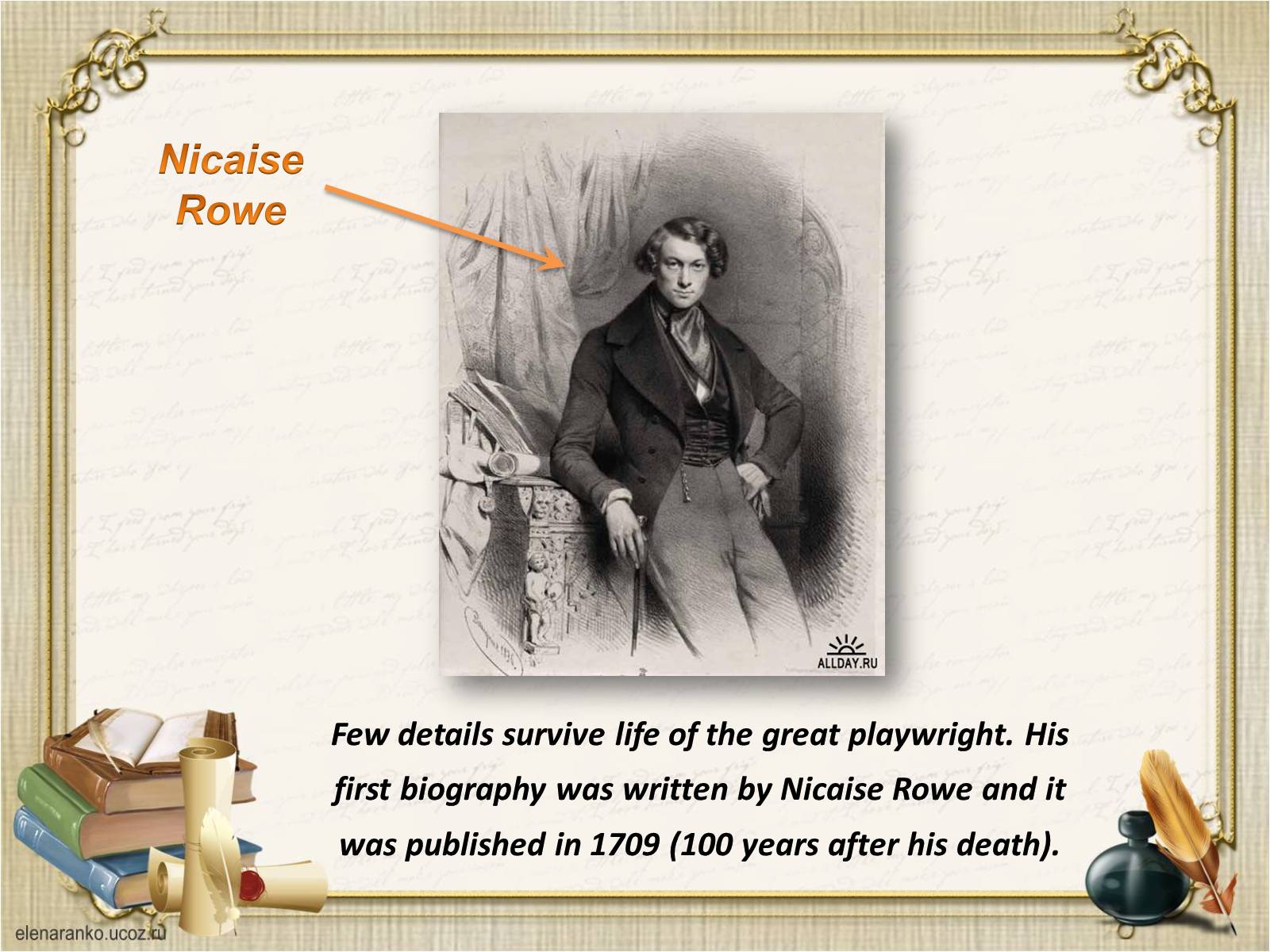
Few details survive life of the great playwright. His first biography was written by Nicaise Rowe and it was published in 1709 (100 years after his death).
Nicaise Rowe

The era in which he lived and worked is called Renaissance. It amazes with the rise of the spirit, great faith in human creativity. The art did not play such a significant role in society and it never has been so majestically beautiful as in Shakespeare's era.
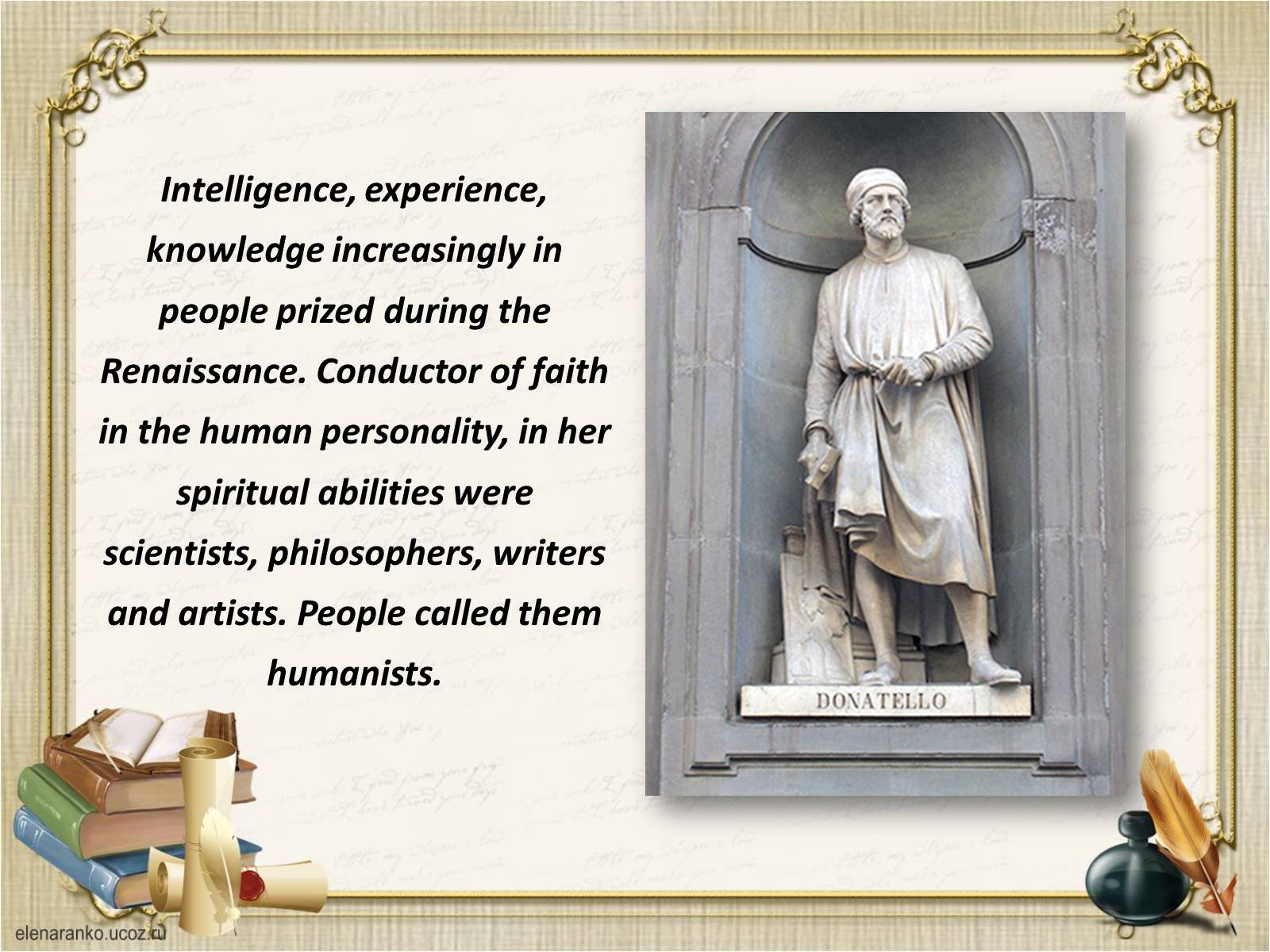
Intelligence, experience, knowledge increasingly in people prized during the Renaissance. Conductor of faith in the human personality, in her spiritual abilities were scientists, philosophers, writers and artists. People called them humanists.

Shakespeare began to perform as a playwright/dramatist in the end of 80 years of the XVI century. Researchers believe that the first he has refined and "updated" existing plays, and then he went on to creating his own compositions.
Shakespeare's plays enjoyed great popularity, but only a few viewers knew his name at that time because viewers get attention to the actor's work for the first time. Shakespeare's plays were very popular, but no one read his plays because poet appealed to actors.
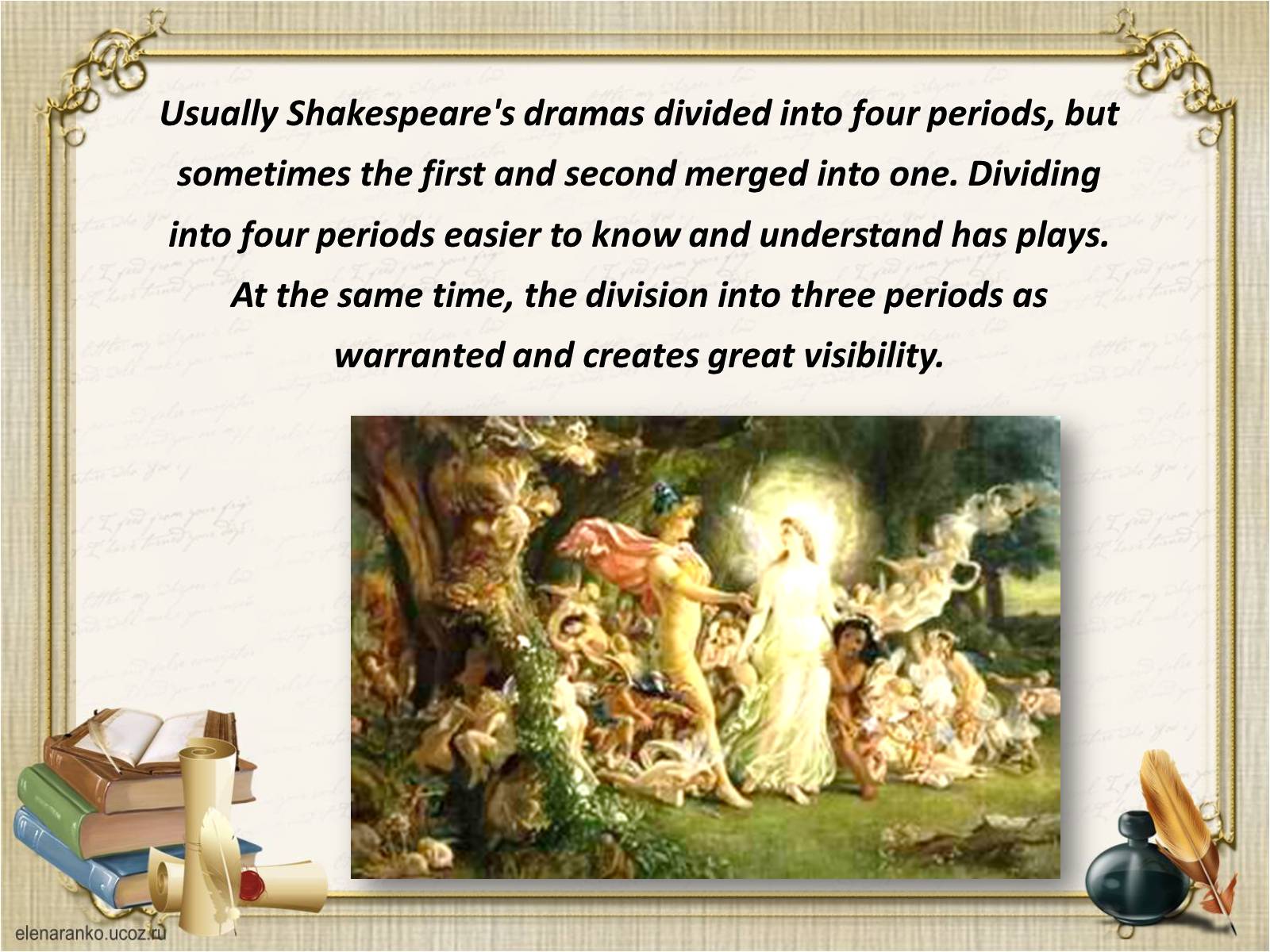
Usually Shakespeare's dramas divided into four periods, but sometimes the first and second merged into one. Dividing into four periods easier to know and understand has plays. At the same time, the division into three periods as warranted and creates great visibility.
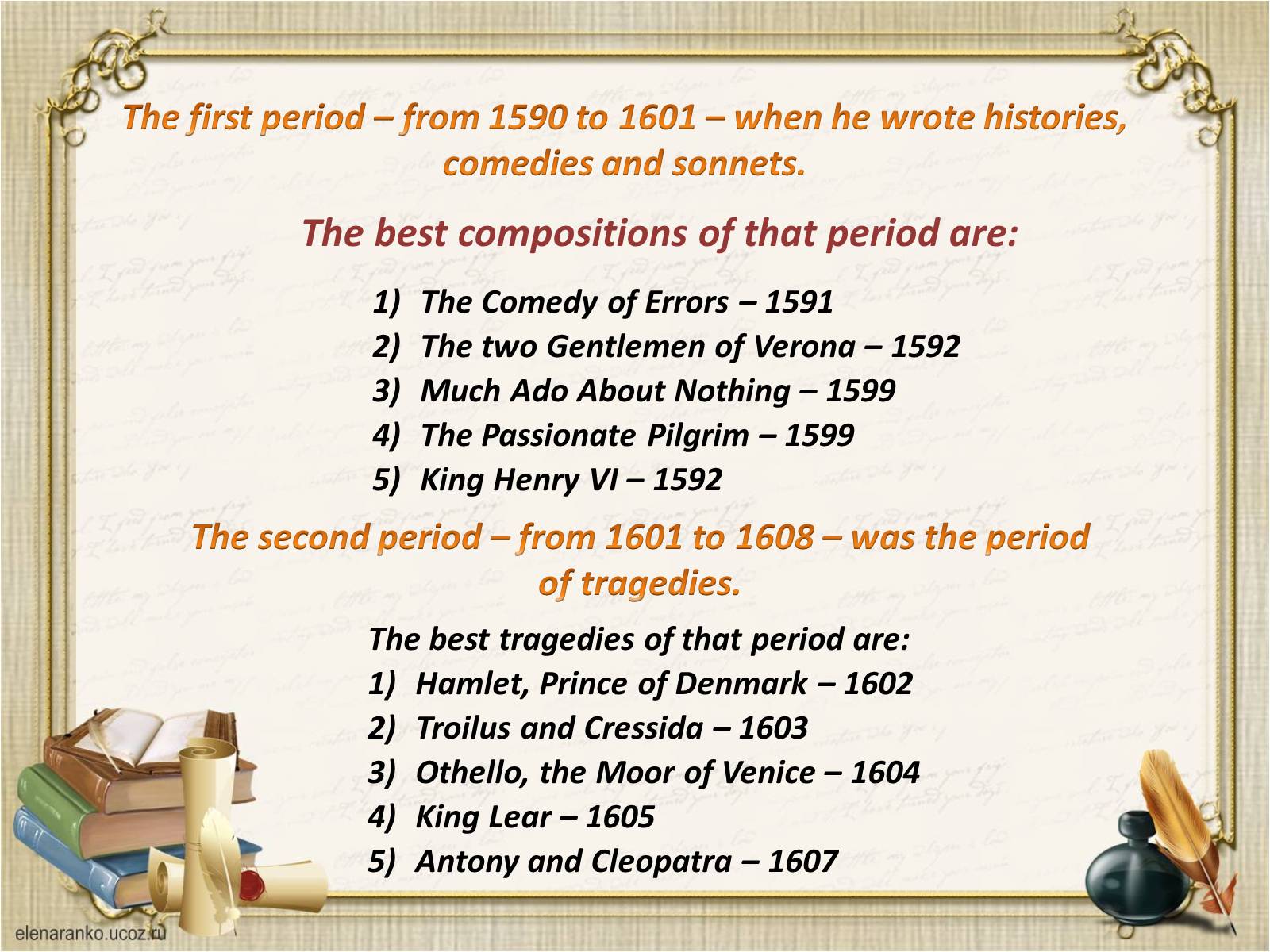
The first period – from 1590 to 1601 – when he wrote histories, comedies and sonnets.
The Comedy of Errors – 1591
The two Gentlemen of Verona – 1592
Much Ado About Nothing – 1599
The Passionate Pilgrim – 1599
King Henry VI – 1592
The second period – from 1601 to 1608 – was the period of tragedies.
The best tragedies of that period are:
Hamlet, Prince of Denmark – 1602
Troilus and Cressida – 1603
Othello, the Moor of Venice – 1604
King Lear – 1605
Antony and Cleopatra – 1607
The best compositions of that period are:
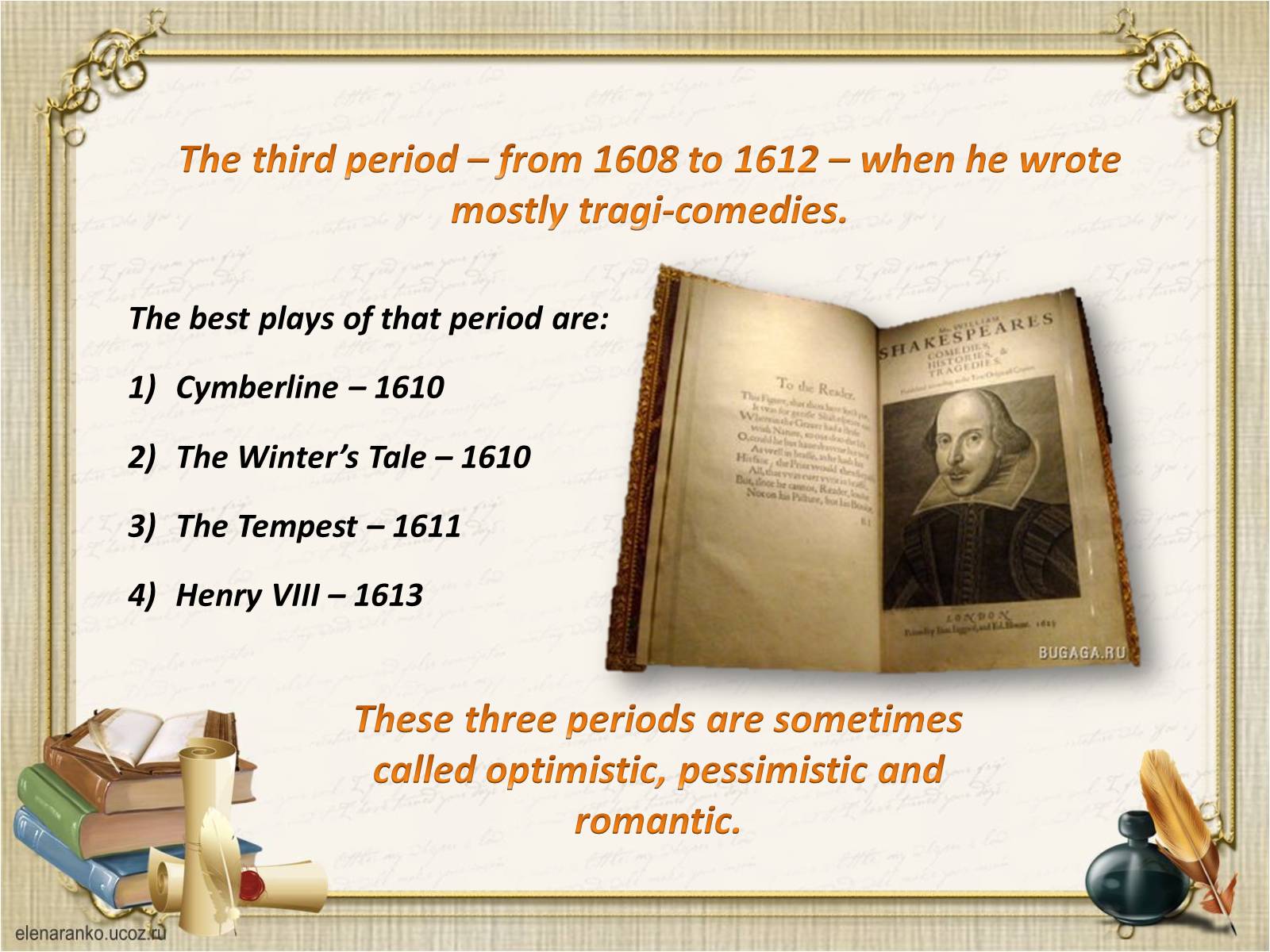
These three periods are sometimes called optimistic, pessimistic and romantic.
The best plays of that period are:
Cymberline – 1610
The Winter's Tale – 1610
The Tempest – 1611
Henry VIII – 1613
The third period – from 1608 to 1612 – when he wrote mostly tragi-comedies.

He that is thy friend indeed,
He will help thee in thy need:
If thou sorrow, he will weep;
If thou wake, he cannot sleep;
Thus of every grief in heart
He with thee does bear a part.
These are certain signs to know
Faithful friend from flattering foe.
My favorite lines of William Shakespeare are lines of work "The Passionate Pilgrim", 1599. I know it by heart. It is very vital. It show how to distinguish “… faithful friend from flattering foe”.

Thank you for
your attention